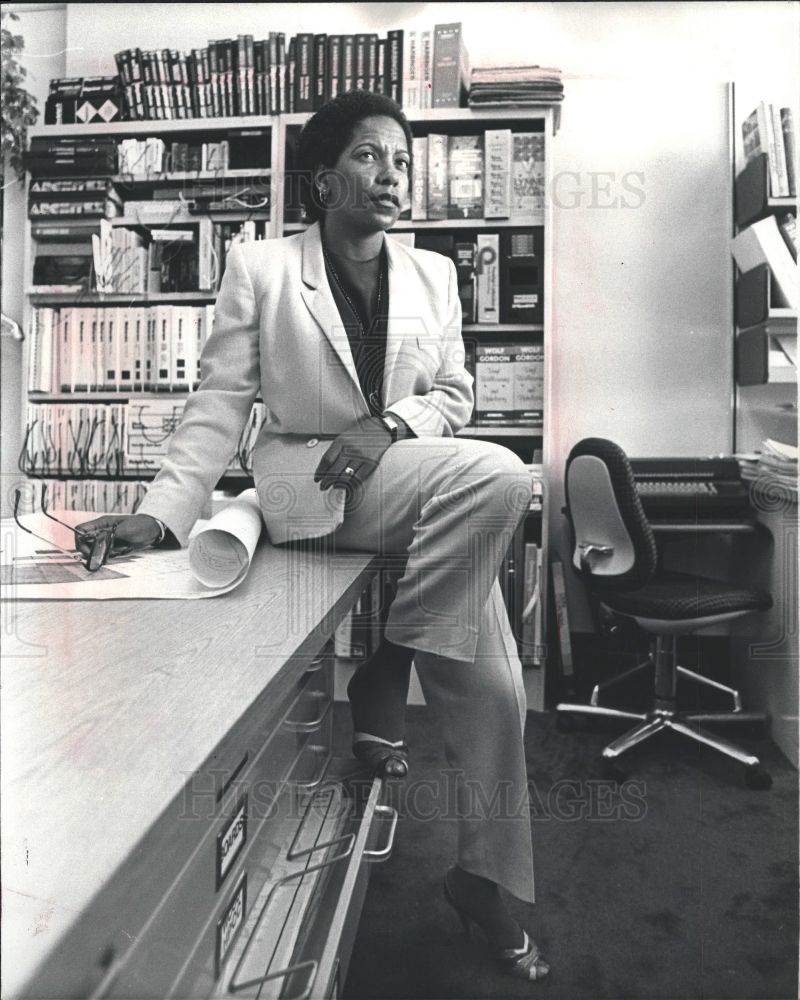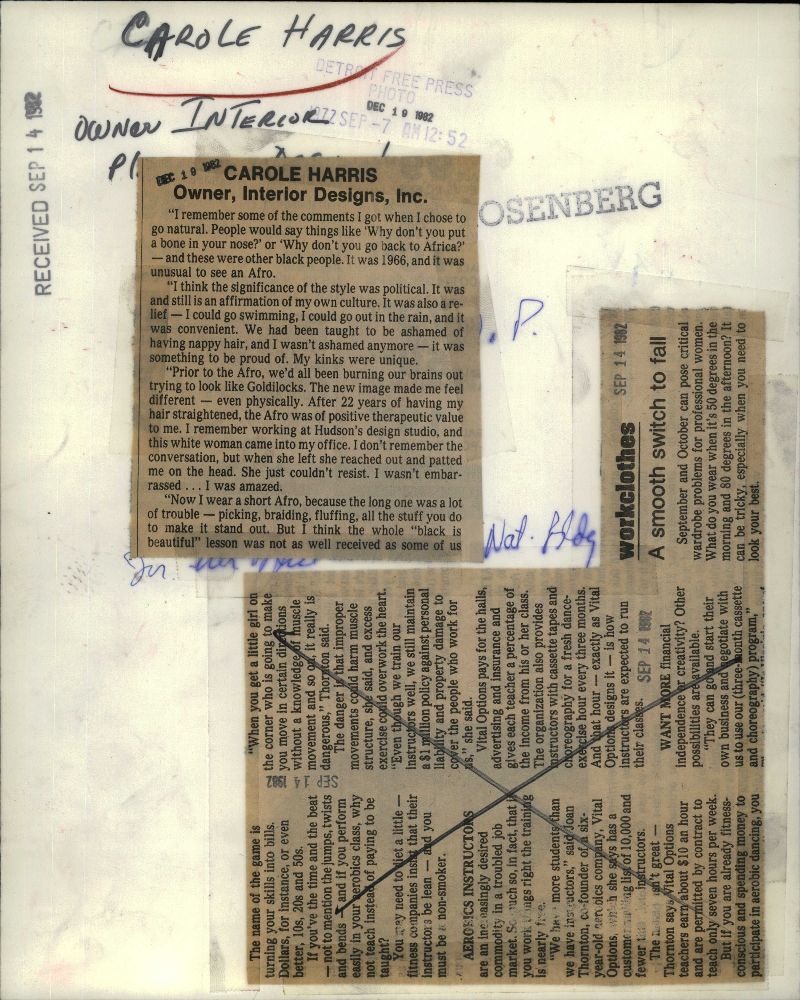Caption: CAROLE HARRISOwner, Interior Designs, Inc."I remember some of the comments I got when I chose to go natural. People would say things like "Why don't you put a bone in your nose?" or "Why don't you go back to Africa?" - and these were other black people. It was 1966, and it was unusual to see an Afro."I think the significance of the style was political. It was and still is an affirmation of my own culture. It was also a relief - I could go swimming, I could go out in the rain, and it was convenient. We had been taught to be ashamed of having nappy hair, and I wasn't ashamed anymore - it was something to be proud of. My kinks were unique."Prior to the Afro, we'd all been burning our brains out trying to look like Goldilocks. The new image made me feel different - even physically. After 22 years of having my hair straightened, the Afro was of positive therapeutic value to me. I remember at Hudson's design studio, and this white woman came into my office. I don't remember the conversation, but when she left she reached out and patted me on the head. She just couldn't resist. I wasn't embarrassed..I was amazed."Now I wear a short Afro, because the long one was a lot of trouble - picking, braiding, fluffing, all that stuff you do to make it stand out. But I think the whole "black is beautiful" lesson was not as well received as some of us..
The front and back of this photograph are pictured below.



